Way of Gorky. A century and a half to the great writer
Being a talented writer, one of the most prominent in Russia at the beginning of the twentieth century, Maxim Gorky played an equally important role in many political events taking place in the life of the country. Both the figure and the work of Maxim Gorky, despite the fact that very few people question his talent of a writer, are perceived ambiguously. This is not surprising, since Gorky was a very politicized person. His sympathies for the revolutionary movement could not help but influence creativity.
Gorky’s political views, which, like many other creative people, were not systematic, were largely due to the vicissitudes of his fate and life’s path. The son of a joiner and grandson of a demoted officer, Alexey Peshkov, was orphaned early and was forced to earn a living by working as a messenger at a store, a dresser on a steamer, a student of an icon painter, a baker. No less difficult were the young years of the future writer - the lack of a profession and secondary education did not allow him to find a good salary for himself.
Already at the end of 1880's. Peshkov got close to the revolutionaries from the circle of Nikolai Fedoseyev and in 1888 came to the village of Krasnovidovo near Kazan to lead revolutionary propaganda. Thus began the “revolutionary career” of the future writer. Along the way, he continued to work - a guard on the railway, a weigher, a clerk from a lawyer. In October, 1889, in his native Nizhny Novgorod, Alexei Peshkov was first arrested and placed in a prison in Nizhny Novgorod, but he did not stay there for long - the arrest itself was only an echo of the subsequent defeat of the revolutionary student movement in the Volga region.
29 April 1891, a young man went on a journey through Russia. Peshkov managed to visit various parts of the country — on the Don, in the Volga region, in the Crimea, in the Caucasus, in the Ukraine. In Tiflis, Peshkov met Alexander Kalyuzhny, a member of the revolutionary movement, who advised Alexey to write down history their wanderings. 12 September 1892 of the year in the newspaper Kavkaz published the story Makar Chudra, which Alexey Peshkov signed “M. Bitter". It was the first printed work of the writer, who chose the name of his father Maxim Savvayevich Peshkov as an alias for himself. Returning to Nizhny Novgorod, Gorky became friendly with Vladimir Galaktionovich Korolenko, who became his literary mentor. Already in 1895, Gorky moved to Samara, where he got a job as a journalist, turning the writing of articles and essays into his main income. At the end of 1897 - the beginning of 1898. Gorky lived in the village of Kamenka (now Kuvshinovo, Tver Oblast) in the apartment of Nikolai Vasilyev, who led the working Marxist circle at the Kamensky paper-making factory. "The Life of Klim Samgin" Gorky wrote based on the impressions of this period of his life.
It was at this time that fame comes to Gorky. Already in 1898, the publishing house of S. Dorovatovsky and A. Charushnikov published in two volumes “Essays and Stories of Maxim Gorky”. After a short time, the writer was arrested and transferred to Tiflis. But the second arrest did not last long. Upon his release, Gorky published The Song of the Falcon, the novel Thomas of Gordeev, and soon he became acquainted with the most famous writers at that time, Anton Chekhov and Leo Tolstoy. But for the literary activities of Gorky did not forget about politics. He took an active part in the activities of local Marxist circles, for which he was arrested and deported. Despite the fact that, as a writer, Gorky was gaining fame and was gaining more and more admirers of his talent, the attitude of the state authorities towards him remained extremely unfriendly. The scandal ended the election of Gorky to the honorary academicians of the Imperial Academy of Sciences for the category of elegant literature. Since Gorky was under police supervision, this decision was annulled, after which Chekhov and Korolenko left the Academy of Sciences in solidarity with Gorky.
Literary activity gave Maxim Gorky incomes that he had never dreamed of before. Gorky, still ten years ago, wandered around Russia and was interrupted by random earnings, turned into a very wealthy person. He settled in Nizhny Novgorod, where he rented a 11-room apartment in the mansion of Baron NF Kirshbaum. By 1902, Gorky’s works were translated into 16 languages, published in 6 volumes. He was able not only to provide himself and his wife Catherine a comfortable life, but also had the opportunity to provide support to those in need. In Nizhny Novgorod, the People’s House was built with Gorky’s money, the People’s Theater was opened, and a school named after Fyodor Shalyapin was funded. Gorky's hospitable home has become a meeting place for Nizhny Novgorod and not only creative intelligentsia. Leo Tolstoy, Ivan Bunin, Fyodor Shalyapin, Ilya Repin - all these golden names of Russian culture have been to the Nizhny Novgorod home of Maxim Gorky.
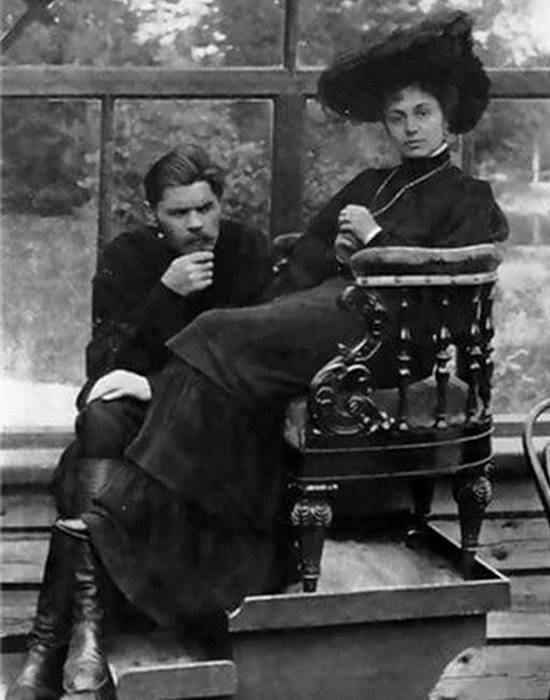
Almost a turning point, which played a huge role in the further evolution of the writer's social and political views, was his rapprochement with actress Maria Andreeva, who played in the Moscow Art Theater. The novel with Andreeva lasted from Gorky from 1903 to 1919 years. The writer actually left Catherine Pavlovna’s wife, although he did not officially break relations with her. Maria Andreeva has collaborated with the Social Democrats since 1899, and in 1903, she personally met Vladimir Lenin, who called her nothing less than “Comrade Phenomenon”. Under the influence of Maria Andreeva, Gorky began to actively cooperate with the Social Democrats, who did not stop supporting the revolutionary movement in Russia.
In 1905, Maxim Gorky was once again arrested and imprisoned in the Peter and Paul Fortress. Both the Russian and the foreign public rose to the defense of the writer - writers, philosophers, scientists, artists, and adhered to very different political views. French writer Anatole France and Italian philosopher Benedetto Croce, French sculptor Auguste Rodin and English writer Thomas Hardy - all these and many other world-famous people demanded that Maxim Gorky be released from prison.
In the end, the tsarist government surrendered - 14 February 1905, the writer was released on bail from the Peter and Paul Fortress. The arrest and imprisonment further strengthened the writer's revolutionary views. In November 1905, Maxim Gorky joined the ranks of the Russian Social-Democratic Labor Party. For the RSDLP, Gorky became a major acquisition — a world-renowned influential writer, respected in cultural circles, a wealthy person who is able to provide the party with serious financial assistance. It was Gorky's active political activity and his entry into the RSDLP that led to the next most important milestone in his life — emigration.
Maxim Gorky left Russia at the beginning of 1906. Through Scandinavia, he and Maria Andreeva and their bodyguard Nikolai Burenin, who was in charge of the RSDLP, went to the United States. The main purpose of the trip was to collect funds from sympathizers at the cash desk to help the Bolshevik Party in Russia. The arrival of a well-known and persecuted writer in Russia caused a real stir in the USA - Gorky regularly met with journalists from American newspapers, with colleagues in the writing workshop, met Mark Twain. However, Gorky could not stay in the USA for a long time - tuberculosis progressed and his health required a climate change for a warmer one. In October, 1906, Gorky and Maria Andreeva arrived in Italy, where Gorky enjoyed special respect. The writer settled on the island of Capri in the Tyrrhenian Sea, where, together with Maria Andreeva, he lived until the 1913 year - seven years.
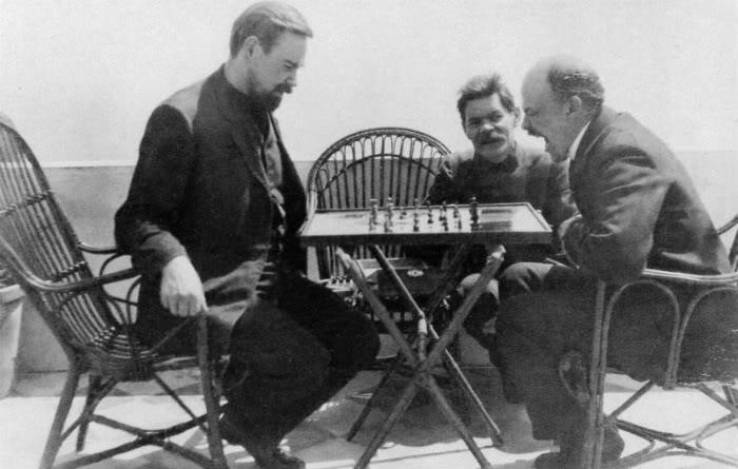
During his stay in emigration on the island of Capri, Gorky’s political views again underwent certain changes. Without abandoning sympathy for the Social Democrats, Gorky nevertheless dispersed on a number of fundamental philosophical questions with Vladimir Lenin. The leader of the Bolsheviks twice came to the writer on Capri - in April 1908 and June 1910. However, the writer was increasingly converging in ideological terms with the “god-builders” Alexander Bogdanov and Anatoly Lunacharsky, whose views to Lenin, of course, were not close. However, under the influence of regular correspondence with Lenin, Gorky’s position did change, and he moved away from the “god-builders.” Perhaps it was his personal meetings with the “Bolshevik number one” that influenced him - Lenin spent thirteen days on Capri in 1910, relaxing with Gorky and talking to him about philosophical topics. These days made both the most favorable impression on Lenin and Gorky. Until the October Revolution, Gorky remained an ardent supporter of the Bolsheviks, continuing to take part in party activities.
In 1913, a general amnesty was declared in the Russian Empire in honor of the 300 anniversary of the Romanov dynasty. Since the amnesty touched, first of all, political prisoners, many people persecuted for their political views were able to breathe easy. Maxim Gorky also decided to return to Russia. He arrived on December 31 1913, settling with Maria Andreeva in Finland and later in St. Petersburg. In Russia, Gorky, in addition to literary work, continued to engage in political activities. He edited the main Bolshevik newspapers, Pravda and Zvezda, published the first collection of works by proletarian writers. However, despite active participation in the social democratic movement, Gorky reacted rather coolly to the revolutionary events of 1917 of the year. This was due to the excessive, in the opinion of the writer, the rigidity of the Bolsheviks. Gorky, who by this time was already a long-time man, well-off and integrated into the cultural elite of the country, could not approve of the measures that the Bolsheviks applied to representatives of the creative intelligentsia.
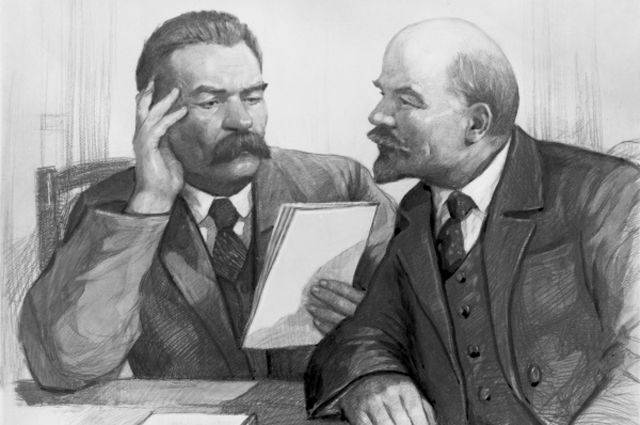
The writer was struck by the ruthlessness of the revolutionaries and again moved away from the Bolsheviks. Relations with Lenin were restored to Gorky only after Lenin was assassinated in August 1918. Using his influence on the leader of the revolution, Gorky defended many cultural and art workers from persecution by the KGB. In 1921, Gorky went abroad to collect donations to fight the effects of the famine that hit the country after a massive drought. October 16 1921, the year Gorky left Soviet Russia. In fact, this was again emigration, although officially Gorky’s departure was explained by his health and the need for a better climate and quality treatment.
In Europe, Gorky continued to play the role of a kind advocate for the Russian intelligentsia and a mediator between the Soviet government and the emigration. The authority of the writer was immense both in the Soviet Union and beyond, therefore the party leadership forgave Gorky a great deal — another person would have been repressed long ago for expressing such views, and if he was in exile, would be declared an enemy of the Soviet state. But even Stalin himself was forced to listen to Maxim Gorky. When Maxim Gorky celebrated 1928 in March in Italy, where he then lived, his 60 anniversary, he was honored both abroad and in the Soviet Union.
In May, 1928, Maxim Gorky, at the personal invitation of Stalin, arrived in the Soviet Union. He came to his homeland for the first time in seven years. During the grand trip to the USSR, stretching for five weeks, Gorky was to familiarize himself with all the country's achievements in the ten years that have passed since the October Revolution. The writer was impressed with the successes of the USSR, but did not stay in the Soviet Union, and in the fall of 1928, he returned back to Italy. The second time he visited the USSR in the next 1929 year, this time also visiting the Solovetsky special-purpose camp. Since Gorky paid special attention to the problem of political prisoners in the Soviet Union, he was very interested in the conditions in which they are contained. The writer left again in a good location to the Soviet country, stressing that the conditions of detention in Solovki are satisfactory and the process of re-education of the prisoners is structured as it should Subsequently, it was this visit to the Solovki camp to Gorky that was remembered by critics of the Soviet government and dissidents.
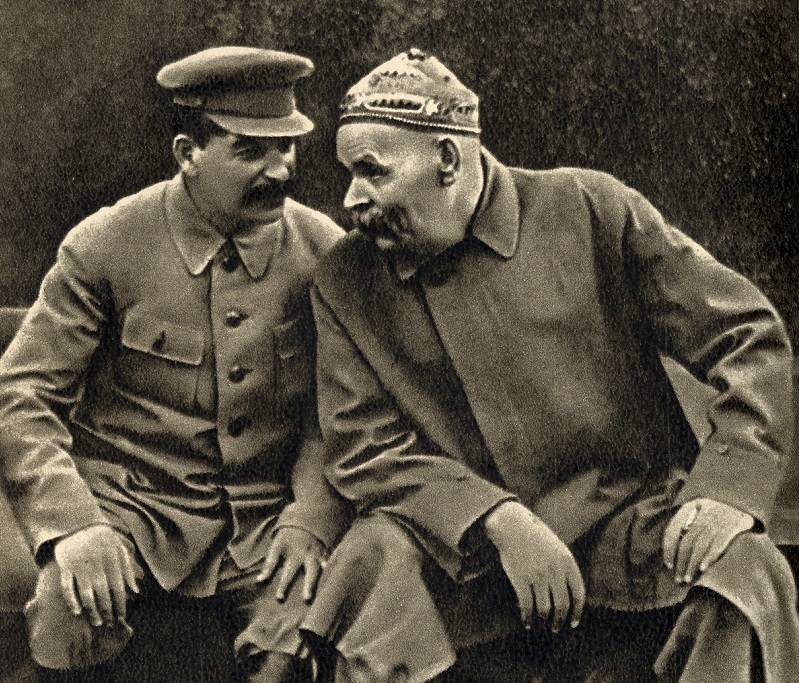
The writer finally returned to the Soviet Union only in 1932. They met him unusually solemnly. In honor of the writer, Nizhny Novgorod was renamed Gorky. The last years of his life, Maxim Gorky spent as the “banner” of Soviet literature, constantly participating in a wide variety of literary and party events. He passed away on 18 on June 1936 of the year on 69's year of life. The urn with his ashes at the funeral was carried, including Joseph Stalin and Vyacheslav Molotov. Although later rumors about the writer's poisoning became widespread, most likely Maxim Gorky died of natural causes - he had very sick lungs from his youth, and the then medicine could not help the 68-year-old writer. “You know, I was arguing with God now. Wow, how did you argue! ”- these were the last words of Gorky, which the nurse heard and recorded.
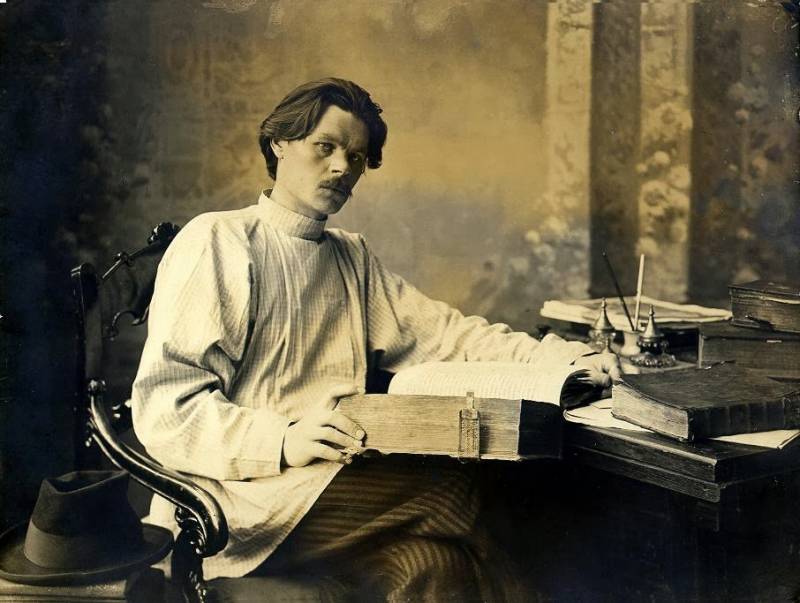
Information